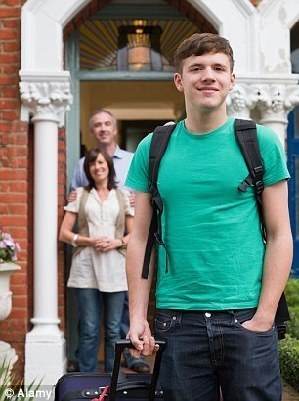当前位置: Language Tips> 流行新词
新闻报道中,空巢族总是被描述为值得关注和同情的一个群体。他们的孩子不在身边,他们的生活了无生趣。可是在国外,孩子成年从家里搬出去独立生活,父母成了空巢族,但是他们一点都不失落。他们觉得重新获得了自由,在家里活动的空间更大,所以,他们是快乐的空巢族。


The day the children move out of home and start a life of their own is a milestone many mothers dread. Or do they?
孩子们从家里搬出去开始独立生活是很多母亲都害怕面对的一个时刻。真的是这样吗?
Far from rattling about their empty nest, most women find themselves enjoying their new freedom and savouring the pleasure of having their home to themselves.
大部分女性(在孩子搬出去以后)并没有成天在空荡荡的屋子里晃来晃去,而是发现自己特别享受这种重新获得的自由,也很享受这种整个房子都归自己的乐趣。
No one raiding the fridge, piling up washing or coming in at all hours seems to have a way of soothing maternal feelings of loss.
没有人会在冰箱里乱翻、堆起一堆要洗的衣服,或者回家没点儿,这些似乎对略显失落的母性情怀有很好的安慰作用。
Researchers surveying mothers who had waved their children off gave them the title ‘happy empty nesters’ – or HENs.
研究人员给这些把孩子送出去自立的母亲取了个名字叫“快乐空巢族”,简写为HENs。
One in seven mothers said they were not as upset as they thought they would be after their children flew the nest, and a third said they were ‘relaxed’ about the life change.
七分之一的母亲表示,孩子搬出去以后他们并没有想象中那么失落,三分之一的母亲则表示对于这样的生活变化很淡定。
The overwhelming majority said they were delighted to see their offspring gaining some independence.
大部分母亲都表示看到自己的孩子独立很开心。(英文来源:Daily Mail)
(中国日报网英语点津 Helen)
上一篇 : 生人语调VS女友专用调
下一篇 : 分秒必争,我们一起来“边等边学”
关注和订阅


电话:8610-84883645
传真:8610-84883500
Email: languagetips@chinadaily.com.cn